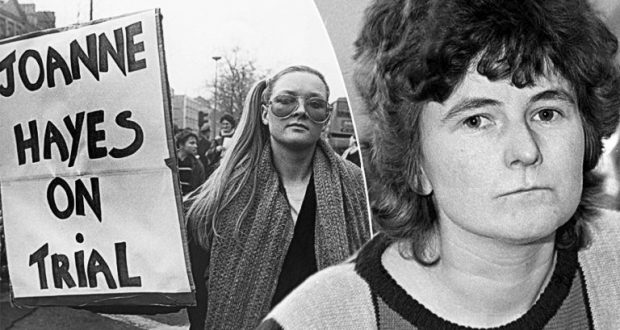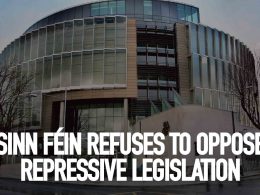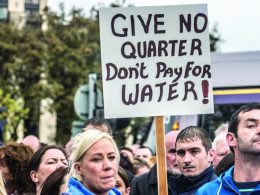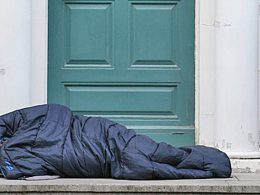Reviewed by Michael O’Brien
Crime and Confessions, a recently broadcast three-part documentary on RTE television (and still available on RTE Player) retells the story of the notorious ‘Heavy Gang’. This was a notorious cabal of Garda detectives responsible for a number of the biggest miscarriages of justice in the history of the state.
Each episode focuses on a particular case, two still relatively well known, the Kerry Babies case of 1984 and the 1976 Sallins’ Train Robbery, and another largely forgotten case: the 1971 murder of Una Lynsky.
The association normally made with the Heavy Gang was their deployment to extract confessions from suspected republican paramilitaries and activists. The documentary series places this in the historical context. The Troubles in the North began to spill into the South. The immediate aftermath of Bloody Sunday saw the Gardaí being overwhelmed by a mass protest in Merrion Square, where the British embassy was burnt down in reaction to the state sanctioned murder of 14 innocent protesters in Derry. Such events caused alarm within the Southern capitalist establishment.
However, if anything, in the course of the 1970s that episode was an outlier. The State was preoccupied by smaller scale acts by the republican movement in the South such as bank robberies and kidnappings which on occasion resulted in the killing of Gardaí. These organisations did not enjoy mass support from the wider working class in the South, the vast majority of whom were repulsed by the Provisional IRA and INLA’s bombing and assassination campaigns in the North and Britain.
The relative isolation of republican activists from the wider working class gave the Gardaí confidence to mete out beatings and torture to extract confessions. The premium on confessions to secure convictions was especially great at a time before forensic science was developed in policing, particularly in the Garda Siochana.
The Sallins Train Robbery episode most closely fits the typical scenario with which the Heavy Gang was associated.
However, with Sallins it was not just a question of the Garda torture of Irish Republican Socialist Party (IRSP) activists Nicky Kelly, Oscar Breathnach and Brian McNally to extract false confessions for the robbery. The government and judiciary are also implicated. Both the Fianna Fáil and Fine Gael/Labour governments throughout the period covered in the documentary supported the use of the Special Criminal Court under the terms of the Offences Against the State Act 1939.
This non-jury court was presided over by three judges and the word of a senior Garda, without any supporting evidence or independent testimony, was deemed sufficient to prove guilt. One of the judges in the first trial, John O’Connor, kept falling asleep and eventually died mid-trial, requiring the case to be tried again from the start!
This court is still in existence and the provision for it under the Offences Against the State Act has to be renewed in the Houses of The Oireachtas every year. Sinn Féin, whose own members suffered the consequences of this repressive anti-democratic provision, no longer oppose the Special Criminal Court!
The international outcry at the patent miscarriage of justice and the subsequent claim by the Provisional IRA that it committed the Sallins robbery led to the release of Breathnach and McNally. Kelly received an eventual Presidential pardon. He had fled Ireland before the original sentencing and was made to serve jail time on his return in the1980s even though he was known to be innocent.
A novel aspect of this short documentary series was the linking the conduct of the Heavy Gang, which was well associated with the extraction of confessions in the Sallins Train Robbery with the Una Lynskey murder and Kerry Babies investigations. Here there was no republican movement dimension but the common denominator of confessions extracted under duress. Another common thread was a basic contempt for working-class people who suffered at the hands of a bunch of glory-hunting thugs in the Gardaí. They knew they were acting with the support of their superiors, and indeed the government.
Joanne Hayes in the Kerry Babies case as well Dick Donnelly and Martin Conmey who were framed in the Una Lynsky murder all gave testimony consistent with those framed for the Sallins train robbery in terms of the methods of the Heavy Gang, headed up by Superintendent John Courtney. These Gardaí have the blood of 19 year-old Martin Kerrigan on their hands. Kerrigan who was co-accused with Donnelly and Conmey was murdered by relatives of Una Lynsky who believed he was responsible for Una’s murder thanks to the actions of the Gardaí.
Detective Gerry O’Carroll, the best known and least media shy of the heavy gang flatly denied any wrongdoing on his part when interviewed, despite being presented with incontrovertible evidence when interviewed during the series.
The Heavy Gang eventually became a liability to the Gardaí and in any event developments in policing made the Gardaí less reliant on forced confessions. The Assistant Garda Commissioner John O’Driscoll in episode three more or less admits that the Heavy Gang’s activities were indefensible.
But beyond the period covered in this series there has been an unbroken thread to the present of political and anti-working class policing of countless strikes and protest movements, as well as a litany of examples of Garda corruption and malpractice. Therefore, while being a worthwhile and educational series and a good platform for the victims of the Heavy Gang, it would be wrong for the viewer to conclude that the Gardaí as an institution has broken with its past featured in this documentary.
Ultimately, its role is to maintain and uphold the social, economic and political order of the present system of capitalism, a system built on the existence of inequality, oppression and exploitation. Its repressive and undemocratic methods flow from this, they are not, as the cliche goes, the by-product of a few “bad apples”.












